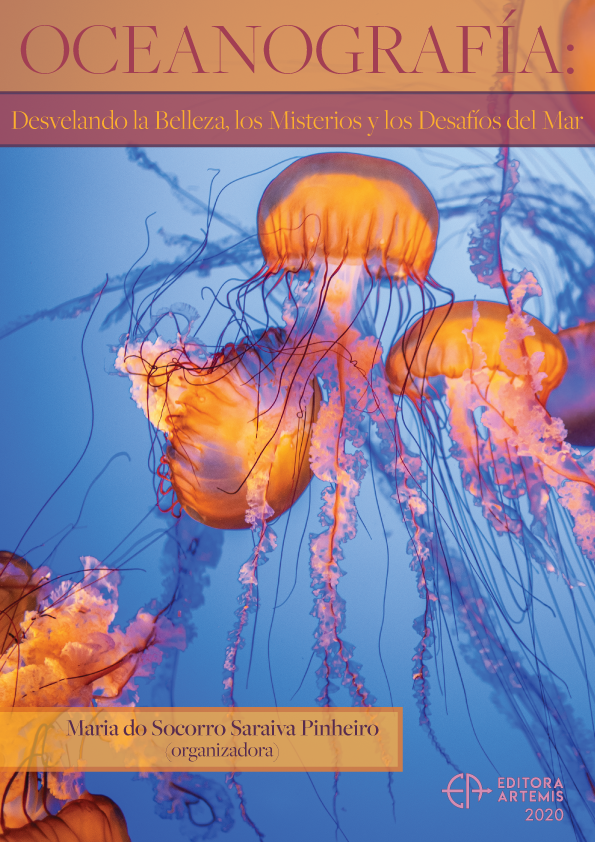
MUSSELS (MYTILIDAE) IN BRAZIL: CONSIDERATIONS FOR MANAGEMENT
A família Mytilidae se distribui desde águas temperadas a equatoriais, ocorrendo em áreas continentais até mar profundo. Muitos destes mexilhões são considerados grupos importantes tanto do ponto de vista ecológico, quanto econômico. Podem causar danos ambientais quando ocorre a introdução de uma espécie de um local para outro, resultando em extinção de espécies locais e grande perda de diversidade. Portanto, este capítulo tem como objetivo indicar questões relacionados a mitilídeos que afetam a gestão deste recurso renovável no Brasil. Características externas da concha e a morfologia das partes moles dos bivalves, são tradicionalmente utilizadas para diagnose do grupo. Associada a essas analises o uso de marcadores moleculares do DNA mitocondrial são usualmente utilizados por taxonomistas para corroborar suas diagnoses. As diferentes ferramentas de identificação permitem confirmar a diversidade de espécies da família Mytilidae presentes na costa brasileira, onde constata-se 18 gêneros e 28 espécies entre nativas, exóticas, criptogênicas e invasoras. Dentre as espécies invasoras destaca-se o mexilhão dourado, Limnoperna fortunei, originário da China e Sudeste Asiático e já confirmado sua invasão em diferentes ecossistemas mundiais. A dispersão e introdução dessa espécie ocorreu na América do Sul pela Argentina, possivelmente pela presença de larvas pelágicas em águas de lastro de navios. Espécies que também se destacam pela importância econômica alimentícia são as nativas do gênero Mytella presentes nas regiões estuarinas, assim como as espécies criptogênica Perna perna e nativa Mytilus platensis em regiões oceânicas. Diante a importância da família Mytilidae, recomendamos avaliações periódicas da presença e Status de mitilídeos nas águas brasileiras, utilizando diferentes ferramentas que possam integrar marcadores diversos na diagnose desse importante grupo animal.
MUSSELS (MYTILIDAE) IN BRAZIL: CONSIDERATIONS FOR MANAGEMENT
-
DOI: 10.37572/EdArt_1633110206
-
Palavras-chave: moluscos; bivalves; diversidade; identificação; recurso renovável.
-
Keywords: mollusks; bivalves; diversity; identification; renewable resource.
-
Abstract:
The Mytilidae Family is distributed from temperate to equatorial waters, occurring in continental areas until deep sea. Many of these mussels are considered important groups both from an ecological, as well as an economic point of view. They can cause environmental damage when a species is introduced from one place to another, resulting in extinction of local species and great loss of diversity. Therefore, this chapter aims to indicate issues related to mussels which affect the management of this renewable resources in Brazil. External characteristics of the shell and the morphology of the soft parts of the bivalves are traditionally used for diagnosis of the group. Related to these analyzes, the use of molecular markers of mitochondrial DNA are usually used by taxonomists to corroborate their diagnoses. The different identification tools confirm the diversity of species of the family Mytilidae present on the Brazilian coast, where there are 18 genera and 28 species, among native, exotic, cryptogenic and invasive. Among the invasive species, the golden mussel, Limnoperna fortunei, originated from China and Southeast Asia, has already confirmed its invasion in different world ecosystems. The dispersion and introduction of this species occurred in South America by Argentina, possibly due to the presence of pelagic larvae in ships' ballast waters. Species that also stand out for their economic importance are the native species of the genus Mytella present in estuarine regions, as well as the cryptogenic species Perna perna and native Mytilus platensis in oceanic regions. Given the importance of the family Mytilidae, we recommend recurrent assessments of the presence and Status of mussels in Brazilian waters, using different tools that can integrate different markers in the diagnosis of this important animal group.
-
Número de páginas: 15
- Augusto Luiz Ferreira Júnior
- Roberto Ferreira Artoni
- Susete Wambier Christo

